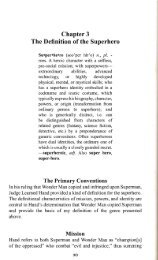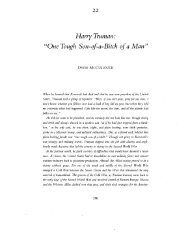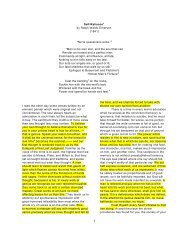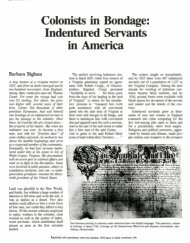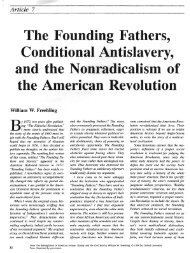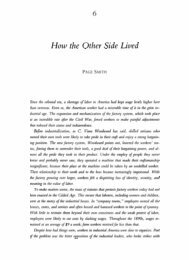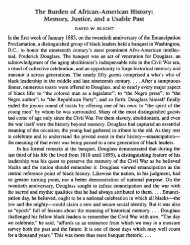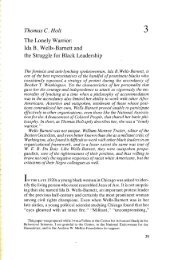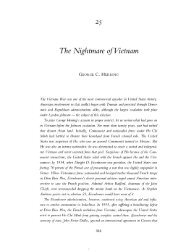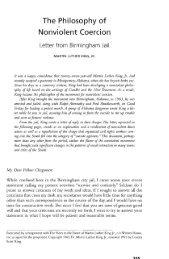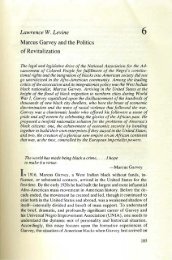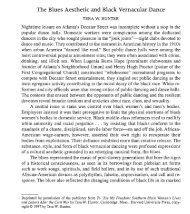Mary - Journeytohistory
Mary - Journeytohistory
Mary - Journeytohistory
Create successful ePaper yourself
Turn your PDF publications into a flip-book with our unique Google optimized e-Paper software.
250 From Slavery to Freedomthe problem could not be solved in this way, and he was faced with having toreach some solution based on the continued presence of blacks in the UnitedStates and in the South. He permitted the establishment of a number of departmentsof "Negro affairs," which assumed responsibility for administering tothe needs of blacks in the early years of the war. Gradually, the work of thesedepartments was taken over by the Freedmen's Bureau.Concerning the recognition of black citizenship, Lincoln was of the opinionthat with education blacks would qualify for it, at least on a restricted basis.In 1864 he wrote to Governor Georg M. Hahn of LouisianaStalu~ of fr~cd asking "whether some of the colored people may not be let inslm'es Ilftcr th~ war [to the elective franchiseJ as, for instance, the very intelligent,and especially those who have fought gallantly in our ranks."Doubtless he was disappointed when the new legislature met in the fall of 1864and failed to extend the franchise to any Louisiana blacks, despite the fact thatmany of them were individuals of considerable intellectual and economicachievement.There was some evidence of a conflict between the president and Congressover the policy of reconstructing the South before the death of Lincoln in April1865. Shortly after Andrew Johnson took office as president, he made it clearthat he would follow the plan of Reconstruction outlined by Lincoln, althoughhe showed some signs that he might go beyond it. When Charles Sumner, theardent protagonist of black rights, conferred with Johnson shortly after he becamepresident, Johnson assured him that they were agreed on black suffrage.In his proclamation of May 1865, he called for complete abolition of slavery, repudiationof Confederate war debts, nullification of the ordinances of secession,and disqualification of the people Lincoln had disfranchised as well as allSoutherners worth $20,000 or more. He appointed provisional governors in theSouthern states, and legislatures, based on white suffrage, were called to modifytheir constitutions in harmony with that of the United States.Through 1865 and 1866 Southern whites gradually assumed the responsibilityof governing their people. The greatest concern of Southerners was theproblem of controlling blacks. There were all sorts of ugly rumors of a generaluprising in which blacks would take vengeance on whites and dispossess themof their property. Most Southern whites, although willing to concede the end ofslavery even to the point of voting for adoption of the Thirteenth Amendment,were convinced that laws should be speedily enacted to curb blacks and to ensuretheir role as a laboring force in the South. These laws,called Black Codes, bore a remarkable resemblance to theBIlid. Codc~antebellum Slave Codes (see chapter 8) and can hardly be describedas measures that respected the rights of blacks as freeindividuals. Several of the codes undertook to limit the areas in which blackscould purchase or rent property. Vagrancy laws imposed heavy penalties thatwere designed to force all blacks to work whether they wanted to or not. Thecontrol of blacks by white employers was about as great as the control thatslaveholders had exercised. Blacks who quit their jobs could be arrested and



